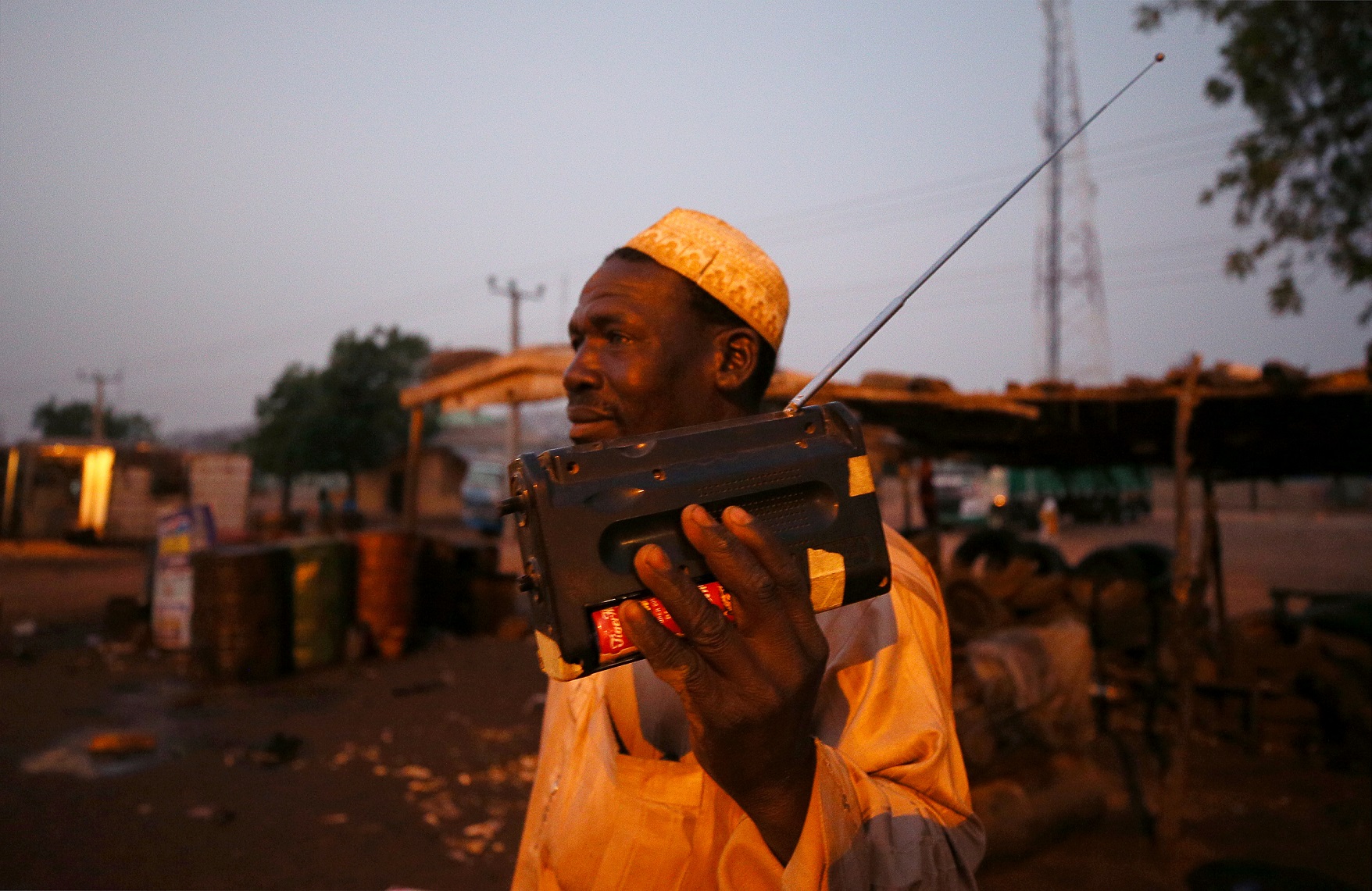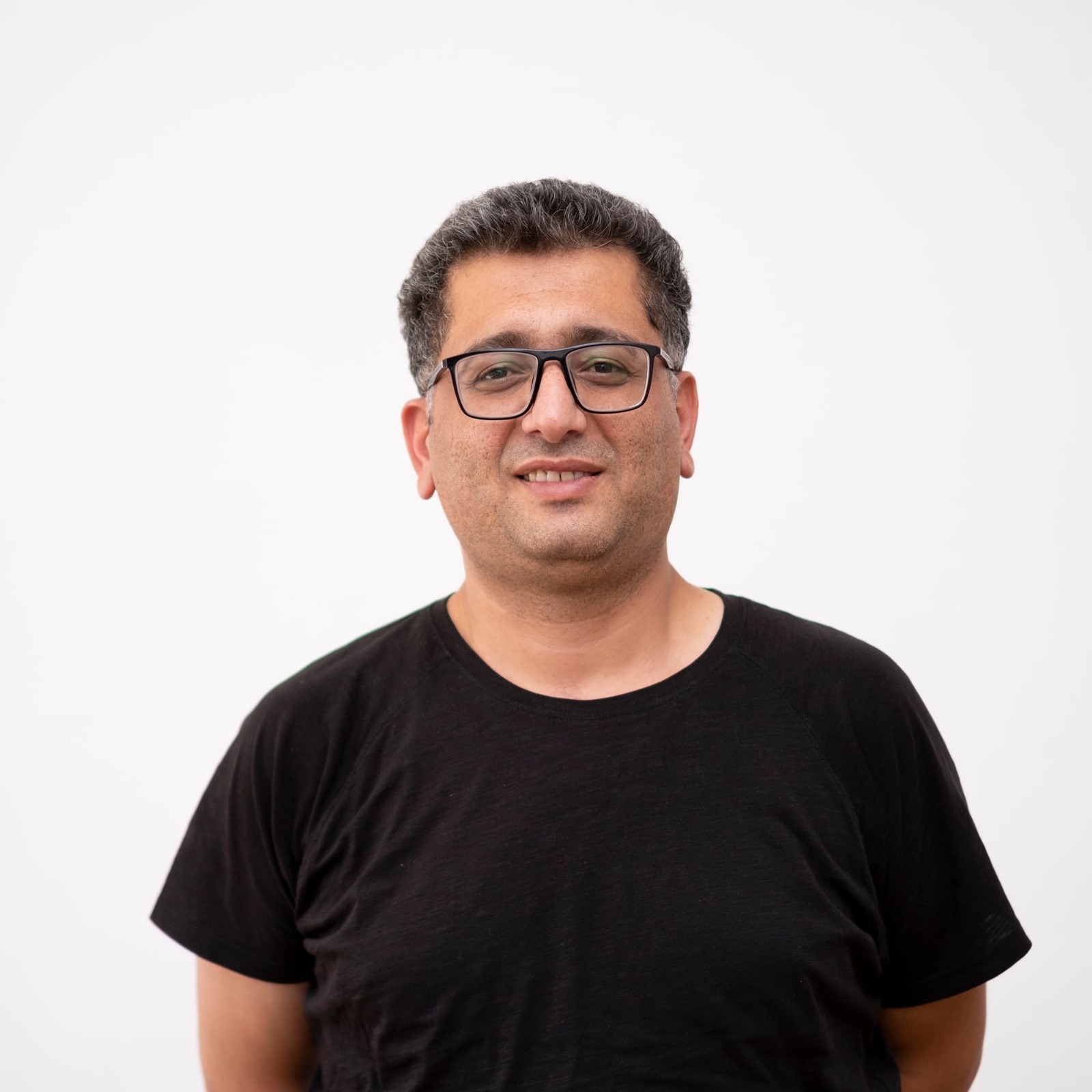في عام 2005 اتصل محمَّد أبو صفيّة، وهو سائق سيّارة أجرة في العاصمة الأردنيّة عمّان، لتقديم مداخلة على راديو البلد حديث التأسيس. ومن دون استجوابه عن مضمون مداخلته، تحدث على الهواء مباشرة.
بعدها، استمرّ أبو صفيَّة في تقديم المُداخلات التي تتعلّق بأوضاع سائقي سيارات الأجرة. في تلك الفترة، أعلن راديو البلد عن دورة تدريبيّة في العمل الإذاعي شارك فيها أبو صفيَّة واجتازها بنجاح، وفي عام 2011، تم تعيينه مقدمًا لبرنامج "سيارة إف أم" الأسبوعي، الذي أصبح بعد ذلك برنامجًا يوميًّا، وأحد أهم البرامج في الإذاعة.
بحسب داود كتّاب، المدير العام لشبكة الإعلام المجتمعي التي تُدير راديو البلد الأردنية، فإن "راديو البلد يهتم بسائقي سيارة الأجرة، ذوي الإعاقة، العمّال، المرأة، اللاجئين، الأقليّات".
يُعدُّ برنامج "سيارة إف إم" مثالًا على الإعلام المجتمعيّ، لكنه يبقى مثالاً تقريبيّاً، ولا يعبّر عن مفهوم الإعلام المجتمعيّ الذي يُثير الجدل على الدوام، إذ قدَّم الاتحاد العالمي للإذاعات المجتمعيّة AMARC، الذي يضم 4000 إذاعة حول العالم في 130 دولة، 9 محاولات لتعريف الإعلام المجتمعيّ، في حالةٍ تُظهر قصر التعريف عن الإحاطة بعمل هذا النوع من الإعلام.
منظمة اليونسكو، عرّفت بدورها وسائل الإعلام المجتمعي بأنَّها "وسائل إعلام مستقلّة، تستند أو تُدار من قبل المجتمع المدنيّ، وتعمل من أجل المزايا المجتمعيّة، وليس من أجل الربح".
تاريخ غير متفق عليه
تاريخ الإعلام المجتمعي مختلفٌ عليه، ومُهملٌ في الدراسات الإعلاميّة، كما أن هناك خلاف على آليات تقسيمه لكنّ يُمكن تعريفه من الدور الذي يقوم فيه؛ إذ جاء الإعلام المُجتمعيّ من الحاجة لملء الفراغ الذي تُحدثه وسائل الإعلام الكُبرى، ربحيّةً أكانت أم حكوميّة، التي قد لا تأخذ بعين الاعتبار، لضرورات مختلفة، السكّان الأقلّ تمثيلًا، أو المهمشين في المجتمعات؛ مثل: محبو لون غنائيّ معين، العاملون في منطقة ما، السجناء، طلبة الجامعات، وغيرهم.
يُمكن تحديد عقد الأربعينيّات من القرن الماضي في الأميركيتين؛ تحديدًا عند السكّان الأصليين، كبداية للإعلام المجتمعيّ. وهناك من يرجع إلى الوراء أكثر لما بعد الحرب العالمية الأولى، حين سيطر متمردون أيرلنديون وألمان في عامي 1916 و1919 على الإذاعات، أو في العشرينيات، حين كان الكثير من هواة البث حول العالم يمارسون البث الإذاعي.
صوتٌ ضدَّ الاستعمار والديكتاتوريّة
بالنسبة إلى مؤرخي الاتصالات والإعلام، فإن تاريخ الإعلام المجتمعيّ يعود إلى عام 1923، وتحديداً إلى إذاعة CFRC-FM التي بثّت من داخل حرم جامعة كوينز بكندا، وكانت تموّل من تبرعات الخريجين.
يعتبر بعض هؤلاء المؤرخين، أن أحد مراحل الإعلام المجتمعي شكّلته بعض حركات التحرر، حيث لعبَ الإعلام المجتمعي دورًا مهمٍّا في إسقاط الدكتاتوريّات حول العالم، ولعلّ الأمثلة الأبرز كانت في أميركا الجنوبيّة، من خلال راديو Rebelde الذي أسسه تشي غيفارا في كوبا عام 1958. كما ساهم الإعلام المجتمعي في التخلص من الاستعمار في الجزائر عبر الإذاعة السريّة التي كانت تتنقّل على ظهر شاحنة، على الحدود الجزائرية المغربية في العام 1956، بعيدًا عن الإعلام الحاكم الفرنسيّ المستعمر، وقريبًا من المجتمع والثوّار. وكانت كل من إفريقيا وأميركا الجنوبيّة وفيتنام تشهد ولادة مثل هذه الإذاعات بدورها الجديد.
باختصار، وفرّ الإعلام المجتمعيّ، في شكله الأوّل، صوتًا للمهمشين، والمجتمعات المدنيّة، في حين وفرّ الشكل المعدل عليه لاحقًا، صوتًا للشعوب الساعية للتحرّر من الاستبداد، والديكتاتوريات حول العالم.
شكل جديد للإعلام المجتمعي
مع ترسّخ مفهوم الديمقراطيّة، وتحرر الكثير من الدول، ومحاولتها بناء مؤسسات لإدارة شؤون المواطنين، بقي لدى الأقليّات والمهمشين مشكلة، لذا سعت هذه المجموعات إلى إيجاد منبرٍ تستطيع من خلاله التخلّص من احتكار الدول للفضاء العامّ، الأمر الذي بسببه نوقشت داخل اليونسكو عام 1978 مسألة تدفق المعلومات، وكان من بين ما أُقرَّ داخل المنظمة في هذا السياق: "ضمان حصول الجمهور على المعلومات عن طريق تنوع مصادر ووسائل الإعلام المهيأة له، مما يتيح لكل فرد التأكد من صحة الوقائع وتكوين رأيه بصورة موضوعية في الأحداث (..) ينبغي أن تستجيب وسائل الإعلام لاهتمامات الشعوب والأفراد، مهيئة بذلك مشاركة الجمهور في تشكيل الإعلام".
بعد ذلك، ولدت روابط واتحادات وجمعيات بالجملة تجمع العاملين في الإعلام المجتمعيّ ومؤسساته؛ مثل الاتحاد الوطني للمذيعين المجتمعيين في أميركا، والاتحاد الدولي للإذاعات المجتمعيّة (أمارك).
في مرحلة لاحقة، انتشرت التشريعات الحكوميّة في الكثير من دول العالم التي تشرّع وتنظّم عمل مؤسسات الإعلام المجتمعي مثل: فرنسا وإيطاليا، وحتّى سيريلانكا. وبقي الوطن العربيّ متأخرًا، الأمر الذي أعاق عملَ مؤسسات الإعلام المجتمعيّة وتأسيسها.
تأخر عربي
لا يبدو أن التشريعات العربيّة واكبت التطور في انتشار الإعلام المجتمعيّ، فعلى الرغم من تبنّي بعض وسائل الإعلام لهذا النوع، لكن يبدو أن الفجوة لا تزال كبيرة.
وفي السياق نفسه، اختتم في العاصمة الأردنيّة عمان مؤخرًا المؤتمر الإقليمي "تمكين المجتمع المدني عبر الإعلام المجتمعيّ"، وبدا لافتًا في نهاية المؤتمر، التوصية الأولى التي قدّمها، والتي تنص على: "إجراء تعديلات تشريعية مناسبة تقر بأهمية الإعلام المجتمعي، وتساعد في خلق بيئة حاضنة تطوير واستدامة إعلام مهني يخدم المجتمع ويتعامل مع تحديات ثورة المعرفة وينسجم مع المعايير الدولية".
يقول داود كتّاب، المدير العام لشبكة الإعلام المجتمعي، والتي نظمت المؤتمر بالشراكة مع منظمة اليونسكو والاتحاد العالمي للإذاعات المجتمعيّة، إن "هناك غياب تشريعيّ ناظم لعمل الإعلام المجتمعيّ في الأردنّ، ومثل ذلك ينسحب الأمر على معظم التشريعات العربيّة عدا تونس؛ إذ لا تشمل التشريعات الاعتراف أو تصنيف الإعلام المجتمعي. وغياب الاعتراف الرسمي يعني أن هناك من يعمل في الإعلام غير الحكومي وغير الربحي، ويجبره غياب التشريع على العمل في نطاق الإعلام التجاري".
شارك في المؤتمر المنعقد في العاصمة الأردنيّة عمّان ممثلين من الأردن، فلسطين، اليمن، بريطانيا، وبلجيكا، وجاء برعاية حكومية ممثلة بوزيرة الإعلام الأردنيّة جمانة غنيمات. تعترف الأخيرة بأن الإعلام المجتمعيّ هو الأكثر تأثيرًا والتصاقًا بالمجتمعات المحليّة، وهو يلعب دورًا في تحقيق التنمية.
ومع إدراك الحكومة لهذه الأهميّة، غير أن التشريعات في الأردنّ مثل التشريعات في أغلب دول الوطن العربيّ (قد تُستثى تونس) ليس فيها ما يُنظّم أو يدعم الإعلام المجتمعيّ. فهل هناك ما يُخيف الدول العربيّة في حال تطورت وسائل الإعلام المجتمعيّة، وقال المجتمع ما يرغب فيه، لا ما يُراد له أن يقوله عبر وسائل الإعلام الرسميّة أو التجاريّة؟
في دراسةٍ أُعدت مؤخرًا، بعنوان "التوزان الجندري في الإعلام الأردنيّ"، أظهرت الأرقام أنَّ نسبة تواجد النساء في وسائل الإعلام الأردني لم تتعدّى الـ 9% فقط، مقابل 91% للرجال. ومثل هذا الغياب أو التغييب لصوت المرأة، هناك كذلك تغييب لصوت الشباب في الإعلام.
التقطت إذاعة "فرح الناس" هذا التغييب مبكرًا، وسعت كإذاعيّة مجتمعيّة لإبراز صوت المرأة، ولاحقًا صوت الشباب، لكن مع تغييرات على شكل عمل الإعلام المجتمعيّ؛ إذ أنَّ العاملين في الإذاعة هم خليط بين صحفيين ومقدمي برامج محترفين، ومعدي تقارير من مجتمع الشباب.
تقول مديرة الإذاعة هبة جوهر: "يضع المستمعون الشباب الدورة البرامجيّة، من خلال توزيع استبيان لمجموعات الشباب المتطوعين في العمل مع مراكز الصندوق الهاشميّ والذين تبلغ أعمارهم بين 16-32 سنة، وهم أساس يُستأنس بآرائهم حول شكل البرامج في الإذاعة، يمثلهم رؤساء لجان شبابية يتم انتخابهم من المجتمع نفسه. إننا نجعل من الشباب صناع المحتوى".
تُموَّل الإذاعة، ليس من المستعمين، أو المجتمع، إنما من القطاع الخاص كمتعاون، ومن خلال المشاريع التي تنجزها الإذاعة. يُمكن اعتبار هذا الشكل، أحد التحولات الحديثة لشكل الإعلام المجتمعيّ، بسبب المشكلة الأساسيّة التي يواجهها، أي التمويل، فهو غير ربحيّ، وبعيد عن الحكومة بل وبديل عن إعلامها.
أخيرًا، يُمكن تلخيص قصّة فلسفة عمل وسائل الإعلام المجتمعيّة -وهي ليست وسائل الإعلام الاجتماعية مثل تويتر وفيسبوك- من خلال إذاعة Radio Ndef Leng Diourbel في السنغال، التي تُعنى بتغطية شؤون أقليّة (Seereer)، التي تطلق شعار"دع المستمعين يتحدثون".
مراجع
- History of Struggle: The Global Story of Community Broadcasting Practices, or a Brief History of Community Radio
- اليونسكو: المبادئ الأساسية الخاصة بإسهام وسائل الإعلام في دعم السلام والتفاهم الدولي، وتعزيز حقوق الإنسان، ومكافحة العنصرية والفصل العنصري والتحريض على الحرب 1978.








































